*Resources below*
By Demyia Pridgen, Program Manager, ICCR & NTC
The month of February marks the celebration of Black History Month when we commemorate African American History. We recall the adversity of slavery and the fight for equality, we recognize the achievements of notable people and pay tribute to their contributions made to this country. As we look back, it begs the question, how far have we come to actualizing the dreams of our ancestors? Are we living the lives they died for? While indeed we have made strides, systemic and institutional failures rooted in racism and oppression frequently relegate African American women to experience some of the poorest outcomes.
The post-traumatic symptoms of slavery are not latent because they rear their ugly head in policies that inherently marginalize, in barriers that prevent equitable access to resources, and in implicit biases that perpetuate victim-blaming, and rape culture. Pervasively disparate measures of health equity across multiple indicators and a plethora of gender-based violence statistics bare the truth of a stark reality for African American women.
During the 1800s, the sexual assault of enslaved women was commonplace. Because laws justified and didn’t recognize rape as a criminal offense, there was no legal recourse yielding a pathway to justice. Today, one in five Black women have been raped. And for every one that reports, at least 15 do not out of fear of mistreatment or not being believed and overall distrust of the criminal justice system. 41% have experienced physical violence by an intimate partner. Involving non-fatal acts of strangulation and the presence of firearms dramatically increases lethality, as one study showed Black women were nearly four times more likely to be killed because of domestic violence than White women.
And while they make up merely 7.8% of the U.S. population, according to the U.S. Department of Justice, through a two-year review of human trafficking incidents, 40% of confirmed sex trafficking victims were black. Moreover, victimization is exacerbated when Black survivors’ who account for 44% of the jail population, have their culpability called into question, causing them to face increased risk of criminalization and incarceration.
The facts are dire and implore us to unpack the simple yet poignant questions, “Why and how?” Understanding the intersectionality of race, class, and gender provides the nuance to explain the implications of historical context with greater clarity.
Today, the Conference on Crimes Against Women (CCAW) acknowledges our nation’s complex past and celebrates the resilient women who paved the way forward. We take a firm stand against all forms of discrimination and are committed to dismantling the structures that perpetuate all forms of violence against African American women.
Furthermore, CCAW recognizes and problematizes the disparity in the prevalence of violence as we seek to find vital solutions that begin with training, collaboration, raising awareness, and knowledge sharing. As we commemorate Black History Month, this year’s CCAW schedule is robust with culturally-specific sessions that highlight a concerted effort to represent diverse populations and demonstrate our solidarity with African American women (see below).
It is true. Slavery and the subsequent era of discrimination that followed would be insidious and undergird the foundational building blocks of society, intrinsically interweaving a pattern of devaluation in the very fabric of American culture that would attempt to undermine progress for African American women. I use the word “attempt” intentionally because we are neither helpless nor hopeless, and we refuse to be reduced by circumstance. We will continue to invoke the indomitable spirits of our mothers, grandmothers, aunts, daughters, and sisters who came before us and harness the power within to rise and thrive. Join us at CCAW 2025. Don’t miss being inspired, and don’t miss being a part of our fight.
REGISTER HERE
References
Banks, D., & Kyckelhahn, T. (2021). Characteristics of Suspected Human Trafficking Incidents, 2008-2010 BJS Special Report. https://bjs.ojp.gov/content/pub/pdf/cshti0810.pdf
Black Women & Girls, Gender-Based Violence, and Pathways to Criminalization & Incarceration Gender-based violence impacts an astonishing number of Black women. (2022). https://www.nbwji.org/_files/ugd/0c71ee_6c3db14e392949e5bb59c679fb1f46a9.pdf
Chinn, J. J., Martin, I. K., & Redmond, N. (2021). Health equity among black women in the United States. Journal of Women’s Health, 30(2), 212–219. https://doi.org/10.1089/jwh.2020.8868
Gu, W., & Hamilton, P. (2021). STRATEGIES The Prosecutors’ Newsletter on Violence Against Women Confronting Racial Bias Against Black and African American Victims in the Prosecution of Sexual Violence, Domestic Violence, Stalking, and Human Trafficking By AEquitas and The National Black Prosecutors Association, with. In https://aequitasresource.org/wp-content/uploads/2021/05/Confronting-Racial-Bias-Against-Black-and-African-American-Victims.pdf. https://aequitasresource.org/wp-content/uploads/2021/05/Confronting-Racial-Bias-Against-Black-and-African-American-Victims.pdf
Sabri, B., Stockman, J. K., Campbell, J. C., O’Brien, S., Campbell, D., Callwood, G. B., Bertrand, D., Sutton, L. W., & Hart-Hyndman, G. (2014). Factors Associated With Increased Risk for Lethal Violence in Intimate Partner Relationships Among Ethnically Diverse Black Women. Violence and Victims, 29(5), 719–741. https://doi.org/10.1891/0886-6708.vv-d-13-00018
UJIMA. (n.d.). BLACK WOMEN AND SEXUAL ASSAULT . https://nwlc.org/wp-content/uploads/2020/05/Ujima-Womens-Violence-Stats-v7.4-1_Condencia-Brade.pdf
Resources from CCAW programs on Black History:
Click each title to access the resource.
CCAW Workshops: Diverse Populations – Focused on the Black community
All of these workshops will be available to attend at the upcoming 2025 Conference on Crimes Against Women:
- Lap Cloths & Loose Clothing: Addressing Sexual Violence in the Black Church
- Media Depictions of Black Women’s Elevated Risk for IPV
- One Size Doesn’t Fit All: Cultural Considerations when Working with African American Youth Survivors of Sex Trafficking
- Understanding Intimate Partner Violence in the Lives of Black Women: Culturally Responsive Assessment & Treatment
PCAW Episodes: Focused on the Black community
Click each title to listen to the corresponding episode.
Black women in the United States are disproportionately affected by violence and yet face significant barriers to services and support. While progress has been made over recent decades to better respond to their experiences, as Karma Cottman, CEO and Executive Director of Ujima, the National Center on Violence Against Women in the Black Community tells us, “we have a long way to go.” In this episode, we discuss the state of violence against black women in America, how firearm possession by violent offenders is leading to higher rates of repeat violence as well as femicide, the failures of systems to protect and serve black women, and the strategies that will best support their safety.
Karma Cottman is the CEO and Executive Director of Ujima, the National Center on Violence Against Women in the Black Community. Ms. Cottman has worked in the gender-based violence field for over 20 years, internationally and nationally in the United States at the local, state, and national level to ensure that policies and legislation are responsive to the needs of GBV survivors, particularly from Communities of Color. Through Ujima Inc., Ms. Cottman has established federal funding streams and national technical assistance centers focused on increasing access for culturally specific service providers to federal and state funding support.
One in four black girls will be sexually abused before the age of 18. Forty-five percent of black women have experienced abuse from an intimate partner. Forty percent of human trafficking victims are black. As fragments of data, these statistics are alarming. Contextualized within the historical experiences of black women and girls in America, they are the results of the sexualization of black women rooted in generational trauma steeped in racism, slavery, dehumanization and so much more. We dive into the history, data and language of these experiences; how they are shaped by policy making and practices in the U.S.; and the role each of us can play in shifting the experience from black woman tropes and victimization to beautifully complex and deserving of multilayered support. Ayana Wallace, Training and Technical Assistance Manager at Ujima: The National Center on Violence Against Women in the Black Community, lends her unique and courageous voice to this conversation providing both history and hands-on understanding of black women survivor needs and experiences. Ms. Wallace has worked for over a decade in the domestic violence field providing direct service to survivors, technical assistance to advocates, law enforcement, community-based partners and faith communities, and toward the advancement of national initiatives that benefit survivors.
Episode seven of the third season of the Podcast on Crimes Against Women, in partnership with Genesis the Podcast, welcomes community psychologist and Assistant Professor at The George Washington University, Dr. Jameta Barlow. In this episode, Dr. Barlow presents a brief history of violence against black women and girls in United States. Dr. Barlow begins with the story of Recy Taylor, and extends to other experiences of slavery and human rights violations against black people in America.
This episode offers a framework for our present reality fraught with systemic failures, barriers to support, and increasing violence against women. Dr. Barlow also provides examples of progress in these areas and offers solutions for the future through her strengths-based approach to solving community health problems. Her 2020 article, titled: The Forgotten Survivors of Sexual Violence: Black Women and Girls in America, was the impetus for this conversation, and it can be found on the website of the American Psychological Association.
Episode two of the second season of the Podcast on Crimes Against Women welcomes Megan Simmons, Sr. Policy Attorney for Ujima, Inc., The National Center on Violence Against Women in the Black Community. Megan discusses the importance and benefits of having diverse leadership in both appearance and philosophy, how minority groups are continuing to strive for a seat at the proverbial table, and how Ujima, Inc. continues to work to diversify leadership in the provision of services to victims of domestic violence and sexual abuse.
In this second episode in a series addressing barriers to survivors of violence, we explore the barriers faced by women of color, especially Black women, the complications of seeking services when the provider may not have diversity in leadership, and the empowerment we can obtain when we all strive to ensure decision-makers in organizations of service mirror the people they strive to assist. Simmons analogizes her work in creating diverse leadership with a quote from the incomparable Shirley Chisholm, “If they don’t give you a seat at the table, bring a folding chair.”
Gretta Gordy Gardner is the Deputy Director for Ujima., Inc.: a project of the DC Coalition Against Domestic Violence at The National Center on Violence Against Women in the Black Community. An attorney, Ms. Gardner’s career as a legal advisor for survivors of domestic violence, sexual assault, and stalking was inspired by her early work as a prosecutor in the Domestic Violence Unit of the Baltimore City State’s Attorney’s Office. She has worked for over two decades to help shape guidelines, policies, and procedures that jurisdictions can use to end intimate partner violence and develop best practices for prevention and intervention in legal systems and community-based programs, which includes training and education on implicit bias. Today’s episode explores intersectionality, a concept introduced by Kimberlé Crenshaw, that provides a theoretical framework for understanding how aspects of a person’s social and political identities (e.g., gender, race, class, sexuality, ability etc.) might combine to create unique modes of discrimination. Content warnings for this episode include: physical and sexual violence
Resource Library: Resources available in relation to the issues facing the Black community
Click each title to view the document/resource.
This paper focuses on help-seeking barriers and factors impacting decisions to leave an abusive relationship among 15 immigrant African women. Barriers found in this study include a culture of gender inequality, acceptance of gender violence, concern for children, and self-blame.
- Protection Orders and Intimate Partner Violence: An 18-Month Study of 150 Black, Hispanic, and White Women
This study comments on the perceived effectiveness of protective orders among black, hispanic, and white women. The results show significant decreases in threats of assault, stalking, and worksite harassment over time among all women, regardless of receipt of a protection order.
This toolkit collects some of the most successful strategies, and tools for engaging communities of color, here defined as people of African, Latino or Hispanic, Native American, Asian, or Pacific Island descent.



